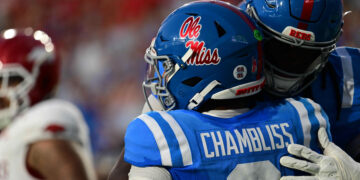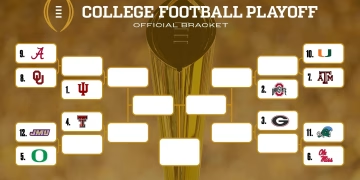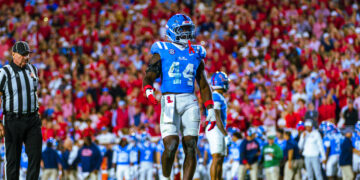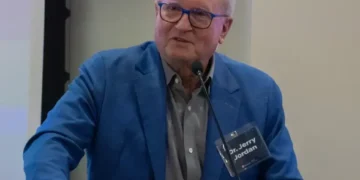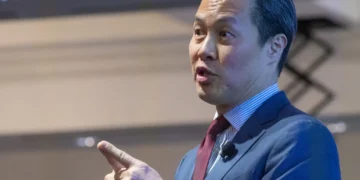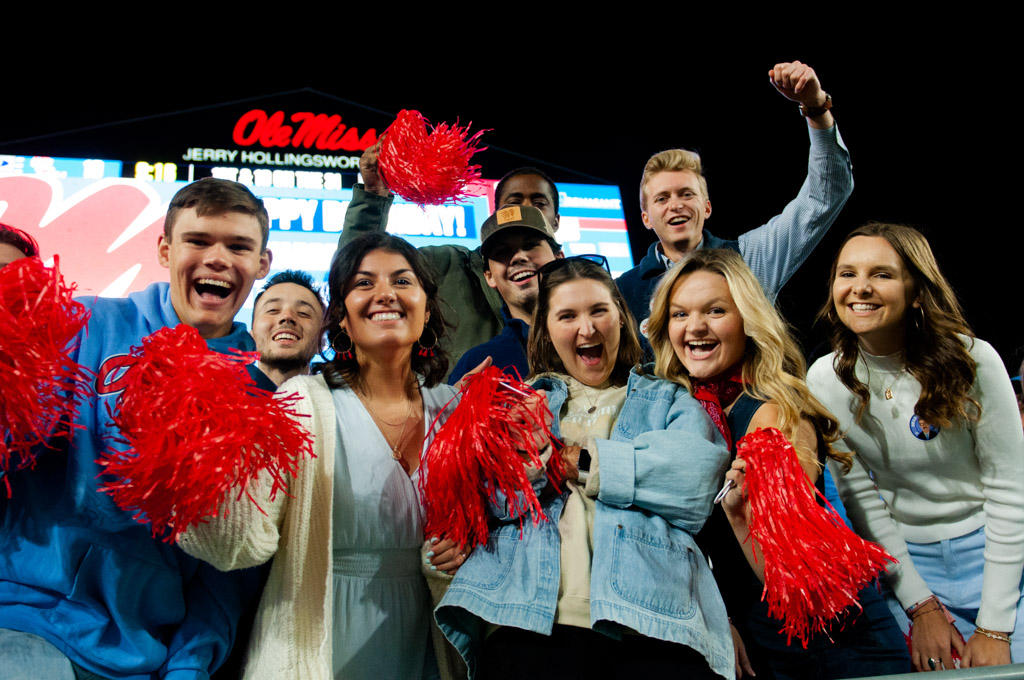
Before they begin their time at the University of Mississippi, every student has an idea of the university’s collective identity. Ole Miss has been called a party school, a rich school, a football school, a racist school and much more. When students’ time in Oxford comes to a close, they often look back and realize it was nothing like what they thought it would be.
So what is Ole Miss, really?
Adjunct Professor of Law Instruction, Criminal Justice and Legal Studies Philip Levy spent his undergraduate and graduate school years at UM.
“I always thought of Ole Miss as a party school for fraternities and sororities. If you can’t get plugged into the fraternity or sorority life, well, you’re not going to find your place. I think that Ole Miss stereotype totally undersells the breadth and the amount of diversity that I see now,” he said.
“I think for most students, the perspective still is that it’s just a social school or it’s just a party school, but you can get a fantastic education and compete with just about anybody in the country,” he said. “Coming out of all this, I firmly believe that, and I think it’s not a fair perception to say that all this is just a social school and not also an academic school.”
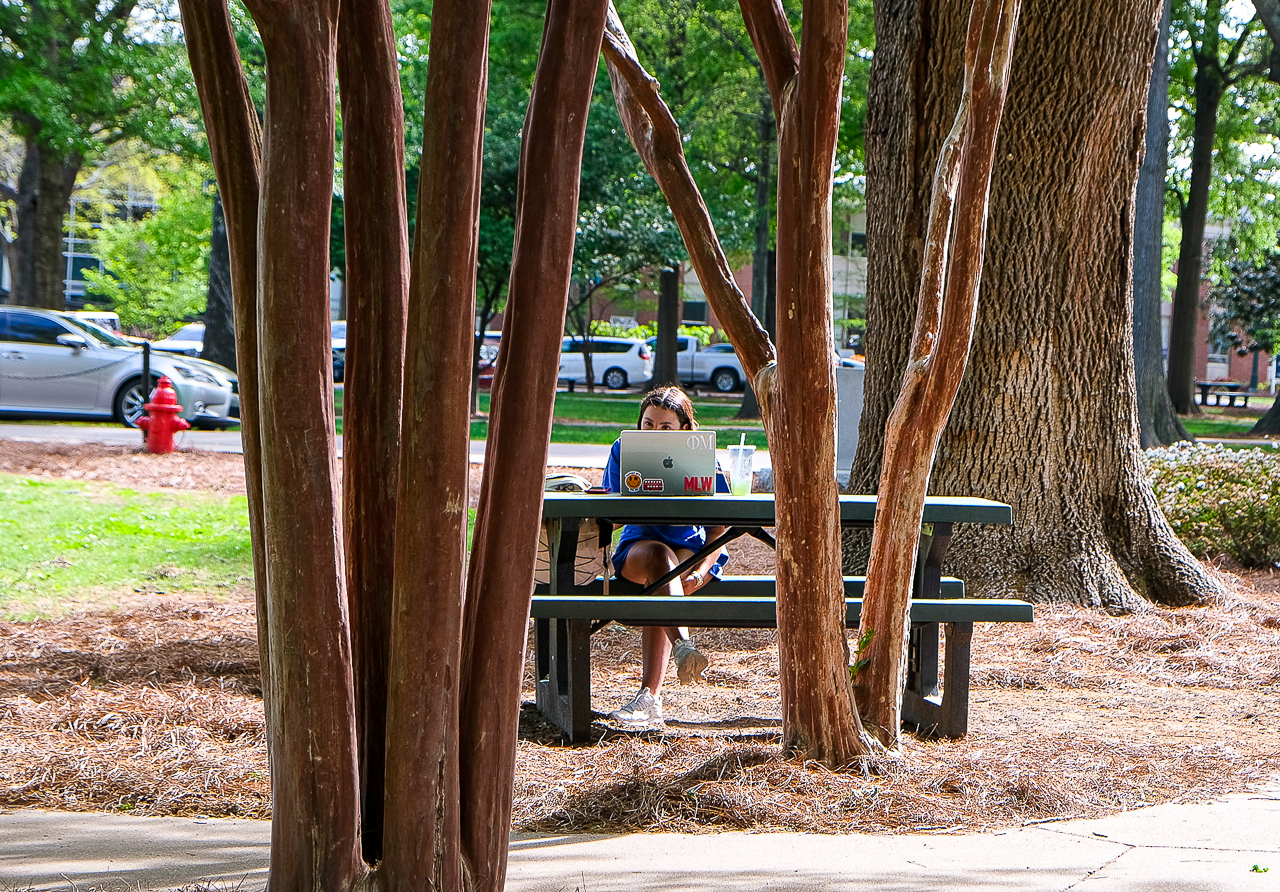
Senior biochemistry major and Laurel, Miss., native Kasia Hosey’s experiences as a former UM College Panhellenic Council president have influenced how she views the university.
“Most of my leadership has been within Greek life, so I have definitely seen the drinking and partying aspects of the Ole Miss experience. However, many would be shocked to see just how committed the Greek life community is to academics, service and breaking barriers on a national scale,” Hosey said. “Contrary to popular belief, this place is full of people who are willing to see, love and respect you for who you are.”
While some students and alumni have found their preconceptions about Ole Miss to be untrue, others have had experiences that affirm the beliefs they arrived with, such as freshman integrated marketing communications major and New Jersey native Reagan Phalines.
“Coming into Ole Miss, I knew it was preppy and there were a lot of people with a lot of money. Now that I’m here, that stereotype is definitely true,” Phalines said.
Even students from closer to Oxford have heard such stereotypes.
A native of Fulton, Miss., senior integrated marketing communications major Brady Wood is a member of the Pride of the South Marching Band and the former president of the Baptist Student Union. Wood was also crowned homecoming king by his peers in the fall 2023 personality elections.
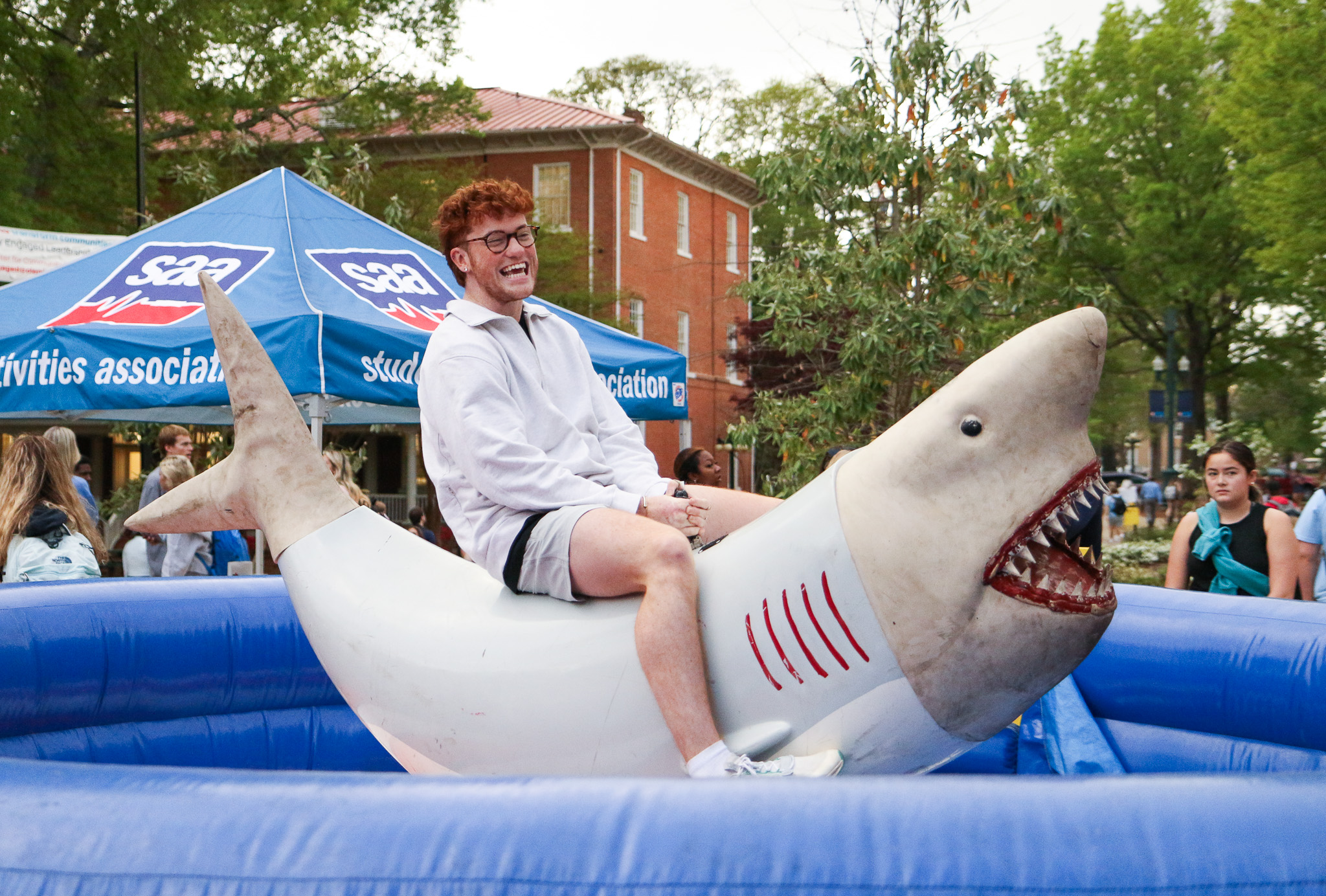
“I often heard when I announced I was coming here that Ole Miss students had some sort of superiority complex and that everyone is stuck-up in Oxford in comparison to the surrounding area,” Wood said.
Unlike Phalines, Wood believes that UM has defied this stereotype.
“Through my time at Ole Miss as a student, I can confidently say that I have never experienced a more welcoming, uplifting (and) positive student body than what exists here,” Wood said. “Through organizations like the band, the Baptist Student Union, Ole Miss Orientation and a variety of others, I felt like I had found the place that I could call home.”
Other stereotypes are a result of UM’s racist past — the university did not admit any Black students until the enrollment of James Meredith in 1962.
“I would say the most common stereotype at Ole Miss is that everyone is racist, and another one would be that they make African Americans feel like they don’t belong,” Deja Johnson, a senior criminal justice major, said.
“When I decided I was coming to Ole Miss at the end of my senior year in high school, I heard both of these comments throughout the duration of the summer, but I don’t believe that either of these statements are accurate. I’m not saying that there aren’t a few bad apples here on campus, but I don’t let one or two people ruin the majority,” Johnson said.
Erik Hom, a Chinese-American associate biology professor from New York City, has taught at UM for a decade and has witnessed firsthand the university’s evolution over the years.
“I think it’s more that there’s ignorance (at UM),” Hom said. “When I first came here … most of the issues of race were literally black and white. I remember most people wouldn’t know how to respond to me. I’ve been called a Mexican, and folks just completely mix up my name. Like, they’d call me ‘Dr. Kim.’”
Although these problems were shocking for Hom when he arrived, he pointed out that the university has become a more diverse place since his career at UM began.
“Now that we have more out-of-state and international students, I think it helps give way to new things,” he said.
Every school, UM included, comes with stereotypes — good, bad and ugly. But, with the university’s efforts to expand diversity and welcome students and faculty of all backgrounds, it seems that the question “What is Ole Miss?” requires more than a one-sentence answer.
“We have some students who come here and get full rides that are very accomplished and smart and will maximize the resources that they have, and we have kids here who are just partying every day,” Hom said. “We are extremely diverse in many ways.”
Aileen Lambert, LGBTQIA+ programs and initiatives coordinator in the UM Center for Inclusion and Cross Cultural Engagement, echoed Wood’s praises of UM’s inclusivity.
“There’s probably an assumption that people in the South are homophobic or close-minded, and I think that’s a gross assumption,” Lambert said. “I found that people are curious. I’ve found that especially students in the LGBTQ community here are really excited to connect with one another and are really excited to support and help and engage with one another.”
Other students noted the sense of community at UM and throughout Oxford.
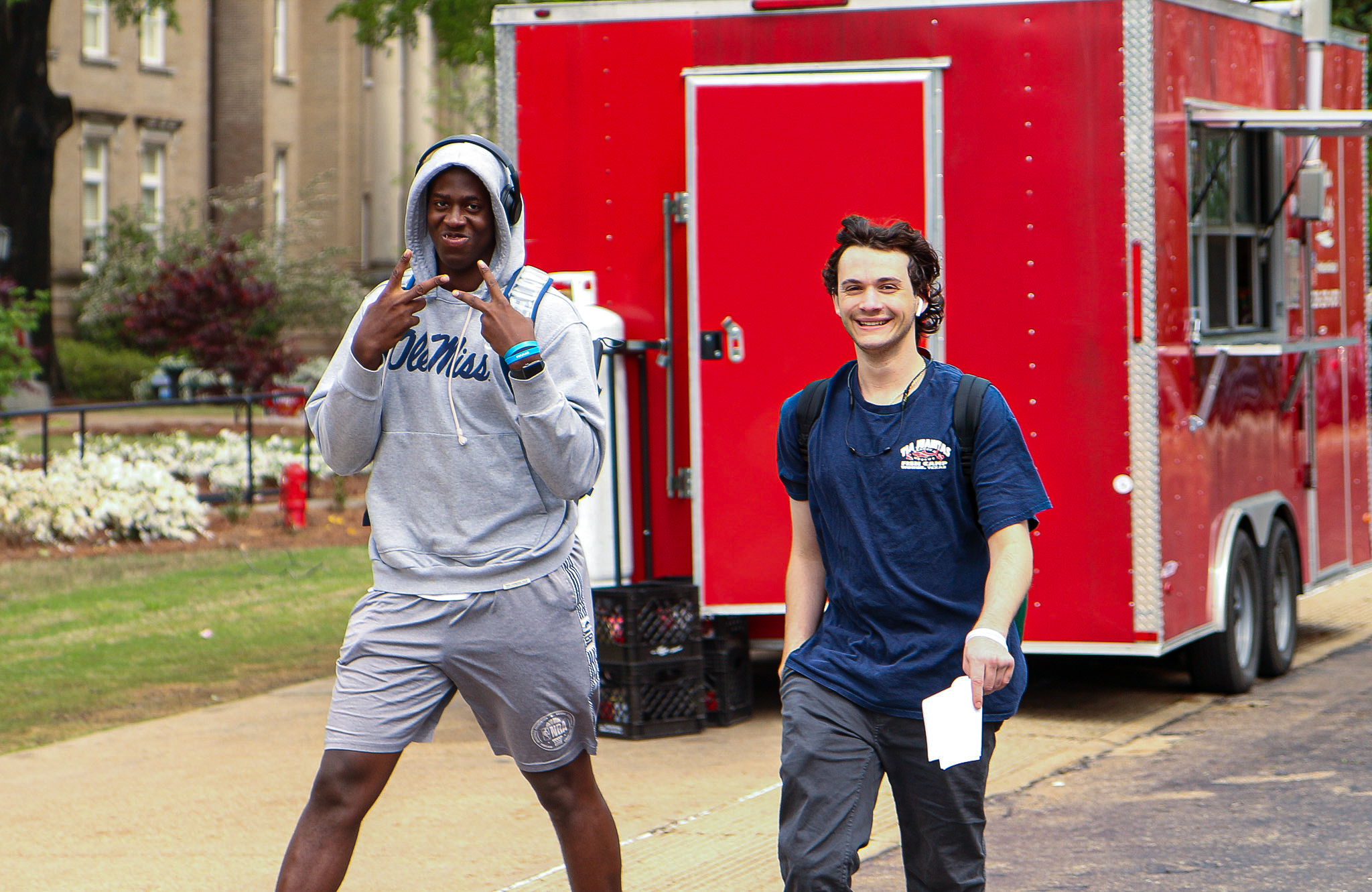
“I knew the stereotype of Ole Miss being a party school when I came here, but as a student athlete it does not feel like that because it isn’t what I make it to be,” Cade Flatt, a sophomore risk management and insurance major and member of the track team, said. “I would say not being in the party scene and bars too much, I notice how the school feels like a community.”
Sydney Stewart is completing her Masters of Science in athletic training after attending Auburn and earning her undergraduate degree in Exercise Science.
“Before coming to Ole Miss, I thought it was going to be really similar to Auburn except I thought there wouldn’t be much crossover between the university and the Oxford community,” Stewart said. “As soon as I got here I realized how small this area is and how the community is so involved with everything the university does. Watching the entire school and community buy into the traditions is so much fun to be a part of.”
Differences in backgrounds and lifestyles coming together is what makes UM unique. With such a large and diverse student population, there is a lot to learn from one another.
“There are 20,000 students at Ole Miss, and there are 20,000 ways of being at Ole Miss,” Lambert said.
Every person who walks through this campus has their own background, goals and experiences, so it should be no surprise that the identity of our campus comes from the identity of the students.
“While it’s been historically known as a university fixated on drinking, partying and Greek life, Ole Miss is so, so much more,” Hosey said. “When I think of Ole Miss, I think of a place that allowed me to grow into my own. I only wish that those producing the stereotypes that are most well-known could see the university through the lens of my personal experience.”













